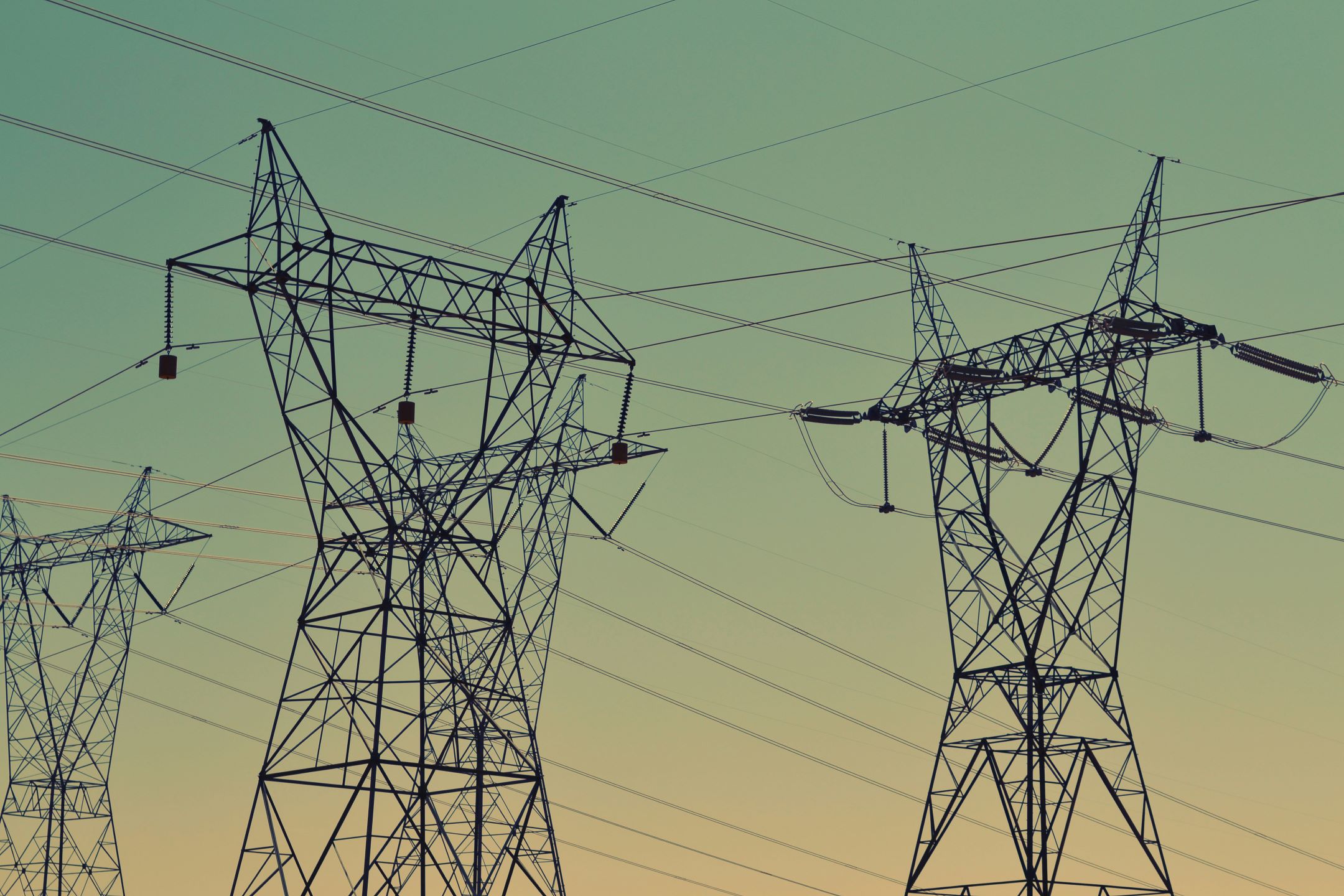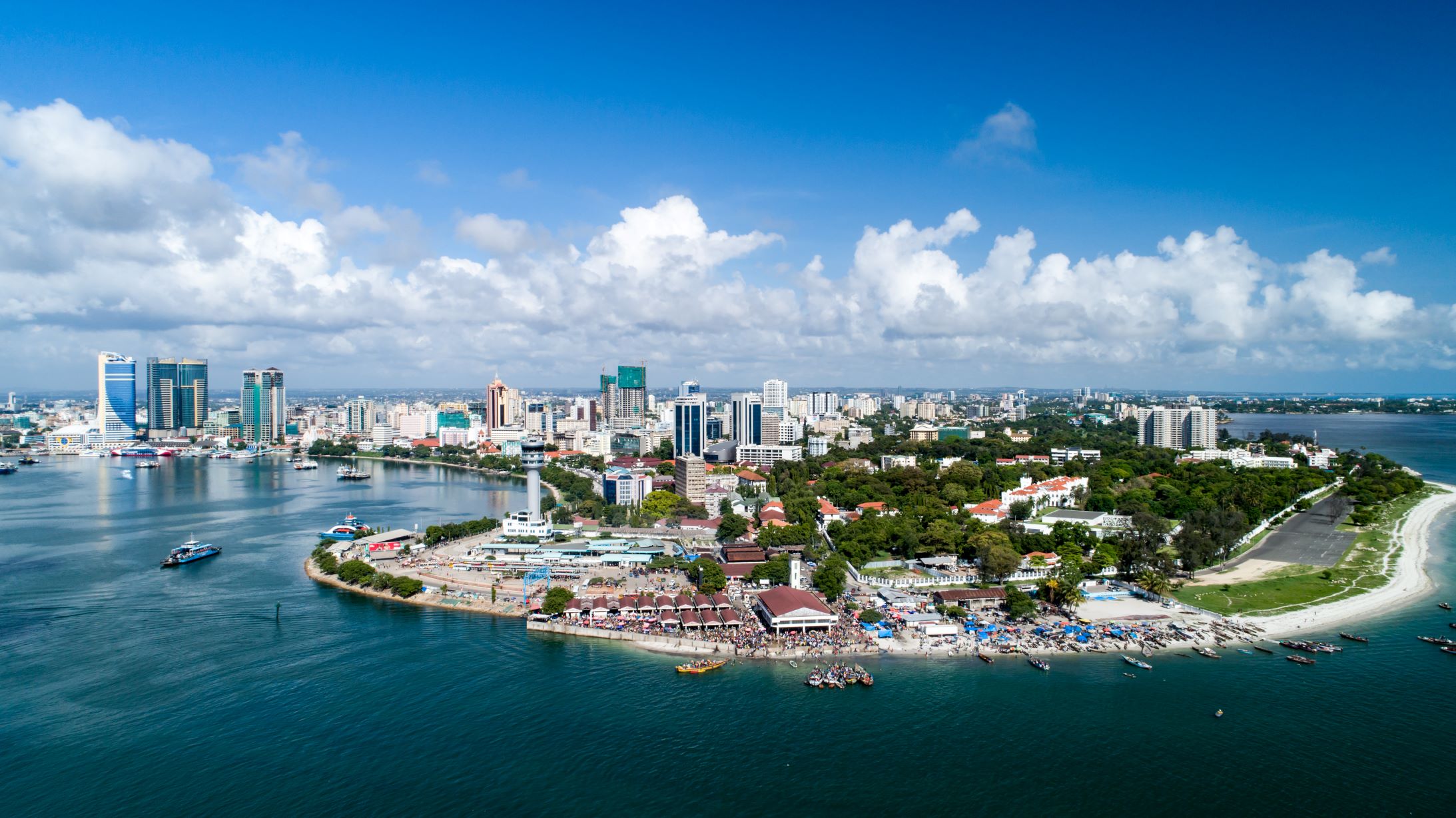Africa
AfDB to Close Infrastructure Gap with Public-Private Partnerships Strategic Framework
The African Development Bank Group has taken a crucial step to further address the infrastructure gap in African countries, with the approval of its first strategic framework for the development of public-private partnerships. This follows approval by the Board of Directors of the Bank Group on 19 January 2022.
Africa’s infrastructure investment gap is estimated at more than $100 billion per year, affecting the living conditions of Africans and the continent’s global competitiveness. Bank experts say public-private partnerships offer an additional approach to increase private sector investments and higher levels of efficiency in the development and operation of infrastructure assets in Africa.
Bank Group President Akinwumi A. Adesina said the new framework would form the bedrock of the Bank’s engagements in the infrastructure sector. “This eagerly awaited strategic framework will go a long way to enabling the Bank to provide much required assistance for the development and implementation of public-private partnerships in our regional member countries, and we look forward to its success.”- Source: AfDB
Africa
AfCFTA Members Conclude Negotiations on Rules of Origin to Enhance Free Trade
Member states of the African Continental Free Trade Area (AfCFTA) concluded on Saturday their negotiations on rules of origin, a move expected to further reduce tariffs on original goods within the African continent.
Ebrahim Patel, chairperson of the African Union (AU) Ministers of Trade, told a press briefing that the adopted rules could cover 87.7 percent of goods on the tariff lines of the AU member states.
Although trading under AfCFTA had started officially on Jan. 1, the problems regarding rules of origin remained unresolved, making it difficult to identify products that could enjoy the preferential tariff regime under the agreement.
“That is a big breakthrough,” said Patel, adding that the agreed rules of origin would become the basis for full-scale trade among the various member states under the free trade agreement to boost Africa’s economic growth.- Source: Xinhua
Eastern Southern Africa
COMESA, SADC, EAC Collaborate to Ease Movement and Boost Intra-Regional Trade
The smooth movement of goods and people across countries’ borders is vital as it removes bottlenecks that hinder intra-regional trade. That is why the Southern African Development Community (SADC), together with its tripartite partners in the Common Market for Eastern and Southern Africa (COMESA) and the East African Community (EAC), is working flat out to have legally binding standards to be met in all Member and Partner States to ensure minimum disruption of movement of goods and people during COVID-19 period.
Under the COMESA-SADC-EAC tripartite arrangement, harmonised guidelines to facilitate transportation and trade of goods and services in the region have been developed to ensure that there is smooth movement of goods and people from one region to the other through a uniform set of laws that are hassle-free for transporters and travelers, resulting in greater benefits to the people of the region.
The COMESA, EAC and SADC Member and Partner States represent 53 percent of the African Union membership, constitute over USD 1.4 trillion Gross Domestic Product (GDP) which is roughly 60 percent of African continental GDP and a combined estimated population of 800 million, making the tripartite region an important building block for the implementation of the Africa Continental Free Trade Area.- Source: SADC
Burundi
EU Lifts Sanctions on Burundi after Seven Years
The European Union announced on Tuesday that it would lift sanctions on Burundi that were imposed in 2016.
In a communique, the EU said this follows a peaceful political process that started with the general elections of May 2020 and opened a new window of hope for the population of Burundi.
“Since the 2020 elections, the EU has acknowledged the progress made by the Burundian government with respect to human rights, good governance and the rule of law, as well as commitments taken in its roadmap (‘feuille de route’) towards further improvements in those areas,” the statement says.
In 2020, Burundi witnessed its first democratic transition of power from the late president Pierre Nkurunziza to the incumbent Evariste Ndayishimiye.
President Ndayishimiye praised the EU decision, saying, “I salute the wise decision of the European Union and its Member States for having taken the step of lifting with immediate effect the economic sanctions against my country. Burundi is ready to cooperate with all partners. Together, anything is possible.”- Source: The EastAfrican
Cameroon-Chad
World Bank Approves USD 538 Million Financing to Boost Regional Connectivity
The World Bank approved a financing package to boost regional connectivity through a regional Cameroon-Chad Transport Corridor project. The World Bank also established Cameroon and Chad’s eligibility for the Prevention and Resilience Allocation.
The Cameroon-Chad Transport Corridor Project will be supported by $538 million from the International Development Association (IDA). It combines investments in rail and road infrastructure, with interventions on trade facilitation to improve the flow of people, goods, and services along the multimodal Douala-N’Djamena corridor—that concentrates 35 percent of the GDP for both countries, 20 percent of Chad’s population, and 35 percent of Cameroon’s population.
“Improving the rail and road corridor between Cameroon and Chad is essential for the competitiveness and improved integration of both countries into the regional market,” said Abdoulaye Seck, World Bank Country Director for Cameroon. “This project is a real window of opportunity to improve the lives of people living in the Lake Chad region, which is affected by climate change, political unrest, and violence,” added Clara de Sousa, Country Director for Burkina Faso, Chad, Mali and Niger.- Source: Africa Business Communities
Kenya
CBK Tests Market with Digital Kenya Shilling
The proposed Central Bank of Kenya (CBK) digital currency will for the first time allow Kenyans to directly keep cash at the apex bank, placing it in direct competition with commercial banks for deposits.
The Kenyan version of the Central Bank Digital Currency (CBDC), whose introduction has been under debate for the last few years, will be exchangeable on a one-to-one basis with physical cash. It will enable customers to bypass banks, with the CBK taking on a new role of keeping track of holdings, transactions and settlements.
The CBDC is being eyed mainly to ease cross-border payments and complement mobile money in the local digital payments space. The CBK on Thursday invited the public to give their views on the potential introduction of the digital currency, in a shift from its original opposition to crypto assets. The regulator noted, however, that having its own digital currency for retail customers could lead to a migration of deposits from commercial banks to the CBDC.- Source: Business Daily
Uganda
Uganda Pushing for New International Coffee Agreement
Uganda Coffee Development Authority (UCDA) had said they are renegotiating new and better terms that favour Uganda’s interests as a coffee producing country.
The negotiations with the International Coffee Organisation (ICO), UCDA said in a statement yesterday, will lead to new agreements in case both parties agreed on certain details. “We went into negotiations since last year, which have not [been] concluded yet,” UCDA. Uganda has been trading its coffee under the 2007 ICO agreement, which stakeholders say does not favour farmers and other players.
Some coffee producing countries have questioned the agreement, arguing that it only favours consuming countries with the interest of farmers, especially in regard to getting a premium price and obtaining better quotas not catered for. Therefore, in September last year, Uganda wrote to ICO indicating its intension to leave ICO unless certain fundamentals are addressed.
In a statement issued by the ICO Mr Jose Dauster Sette, the ICO chief administrative officer of the depositary, informed members that Uganda had notified the organisation of its intention not to extend its membership, noting that the withdrawal had become effective on February 2.– Source: Monitor
Namibia
Namibia to further Exploration Activities after Deep Water Oil Discovery
Namibia is gearing to conduct further exploration activities in order to determine the size and recoverable potential of hydrocarbons, said its Minister of Mines and Energy Tom Alweendo on Tuesday.
Alweendo confirmed in a ministry statement that there had been a discovery of light oil in the Orange Basin offshore Namibia by a joint venture at the Graff-1 prospect some 250 km offshore Namibia.
“I congratulate Shell, Qatar Energy & National Petroleum Corporation of Namibia(NAMCOR) on their recent oil discovery offshore Namibia. It gives us a clear shot at reimaging our economy. When the time comes, we would need to think boldly in structuring a recovery model that is in the best interest of all stakeholders,” said Alweendo. Meanwhile, Namibia’s Petroleum Commissioner, Maggy Shino echoed Alweendo’s sentiments, saying that the discovery signalled a milestone achievement.
“The Namibian Government is excited to enter this new era in the oil and gas exploration sector. A great milestone has been achieved within the Orange Basin with this significant offshore discovery. We are looking forward to boundless cooperation(s) with the Joint Venture(JV) partners, to optimally progress this discovery,” said Shino.– Source: Xinhua
Nigeria
EU to Invest EUR 820 Million to Boost Nigeria’s Digital Economy
The European Union (EU) plans to invest EUR 820 million to support Nigeria’s digital economy over the next three years, a top EU official said on Monday.
The amount includes EUR 660 million worth of loans and EUR 160 million as grants, EU Executive Vice President Margrethe Vestager said during a working visit to Nigeria’s communication minister in Abuja. The coronavirus pandemic has accelerated Nigeria’s push for digital services with technology-enabled companies attracting private equity money in healthcare, financial services and education, among others.
Vestager said the investment will help Nigeria strengthen its digital infrastructure, public services and governance. “Nigeria has immense potential for digitalization,” Vestager said, adding that the EU aims to support Nigeria’s digitalisation strategy.
Nigeria, Africa’s largest economy, wants to modernise its digital economy to boost public services and revenues. The Minister of Communication and Digital Economy Isa Ali Ibrahim said Nigeria was working towards achieving a paperless office by 2030.- Source: Reuters
Uganda
East African Crude Oil Pipeline Enters Fundraiser Phase
After announcing the final investment decision, the shareholders of the East African Crude Oil Pipeline (Eacop) now turn to looking for money to conclude the deal for financing of the project, which is expected mid this year.
The Eacop is a key infrastructure project that will transport Uganda’s oil to export markets, hence a major component in the commercialisation of the Lake Albert oil resources.
The 1,443km pipeline from Hoima in Uganda to the Indian Ocean port of Tanga in Tanzania, will cost USD 5 billion – a jump from the original cost of USD 3.5 billion due to the increase in prices of key inputs such as steel, cost of shipping as well as the cost of loans. “Fully loaded, we are looking at a cost of $5 billion,” says John Bosco Habumugisha, the General Manager, National Pipeline Company.
According to Proscovia Nabbanja, the Chief Executive Officer of State-owned Uganda National Oil Company (Unoc), the shareholders are expecting financing offers from a number of Export Credit Agencies (ECAs) from Europe and China.
“The financial closure is not yet achieved, we are hoping to reach it latest mid this year,” she told journalists during a press conference after the FID announcement on February 1.- Source: The EastAfrican
Reports
World Development Report 2022: Finance for an Equitable Recovery
The World Development Report primarily focuses on the post-pandemic recovery efforts that have been adopted by different governments especially those in the developing countries. The main areas of focus in this report are on debt restructuring, increasing lending, managing sovereign debt, recovery adjustment plans and policy making.
Click here to download the report.
Global Cybersecurity Outlook 2022
The Global Cybersecurity Outlook series focuses on the ever-changing issues surrounding the safety of data within cyberspace. It largely focuses on cyber resilience, cyber security in business decisions, ecosystem vulnerability and transparency and trust. The report also seeks to explore the ever-changing landscape of cybersecurity in an industry that is evolving continuously.


